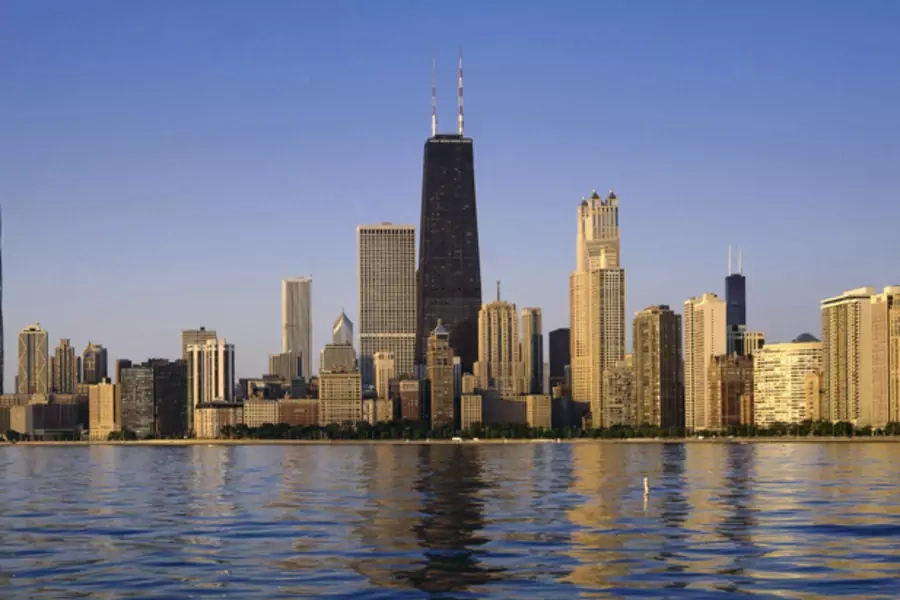Policy Initiative Spotlight: Chicago’s Bold Infrastructure Plan

More on:
Renewing America is launching a new feature today called the “Policy Initiative Spotlight.” We will identify and highlight important policy innovations, noteworthy experiments, or little-noticed success stories that could play a positive role in rebuilding U.S. economic strength. Many of these will be state or local efforts, though at times we will also write about international developments that have direct relevance for the United States.
Our first post, written by Renewing America contributor Steven Markovich, who holds an MBA from the University of Chicago’s Booth School of Business, focuses on Chicago Mayor Rahm Emanuel’s announcement this week of an ambitious $7 billion infrastructure plan for the city.
“The program integrates investments in Chicago’s roads, pipes, airports, parks, schools, public buildings, and mass transit systems. It’s a striking commitment at a time when states and cities are cutting infrastructure budgets and Congress continues to debate a successor to the transportation infrastructure spending bill that expired over two years ago. Emanuel says the projects will be paid for through user fees, cost cutting, and energy and other savings rather than through higher property or sales taxes.
Chicago’s plan is expected to create 30,000 jobs, nearly 6,000 from a $1.4 billion project at O’Hare International Airport—a hub for United and American Airlines—to add two new runways and cut delays by 80 percent in 2015. Another $1.4 billion would go to water systems; 900 miles of water pipes responsible for 3,800 leaks in 2011 would be replaced, along with 750 miles of sewage pipe, while two water filtration plants would receive upgrades. U.S. water systems earned “D-” scores in 2009 from the American Society of Civil Engineers and are in critical need of upgrading.
Other major projects include $1 billion for the Chicago Transit Authority (CTA). These funds would be used to establish rapid transit bus lines and to repair over 100 elevated train stations. While a good start, currently there are no plans to fund extensive station modernization or to extend major lines; these CTA proposals would cost $3.4 to $5.4 billion more.
Remaining programs include creating new parks, and renovations to K-12 schools and Chicago’s community college system. A program to retrofit municipal buildings to reduce energy costs by 25 percent within three years will cost $225 million.
This last program is particularly interesting because it is the first to be funded by the Chicago Infrastructure Trust, a signature initiative of Emanuel’s administration. Announced earlier this month by Emanuel and former president Bill Clinton, the trust is designed to use private capital to help fund public infrastructure projects. The trust will tailor a financing structure for specific programs, using a mix of taxable and tax-exempt debt, equity investments, bond issues and other means.
This approach would break with past Chicago efforts to involve the private sector in infrastructure. Under Mayor Richard M. Daley, Chicago leased public goods such as the Chicago Skyway and all street parking to private operators under long-term deals. These leases freed up city funds, but proved unpopular with the public, and a $2.5 billion deal to lease Midway Airport fell apart. The trust, in contrast, would ensure that ownership and control remained with Chicago.
The trust is cooperating with five major financing organizations, which collectively have an initial investment capacity above $1 billion. However, those funds will only be deployed if projects’ financial structure meets the approval of investors. Once a project is constructed, its returns will be used to pay back the trust and private investors.
Similar initiatives to deploy private capital are under development elsewhere. Three bills to establish a national infrastructure bank have been introduced in Congress. In New York, Gov. Cuomo is promoting a state infrastructure bank to be capitalized with over $232 million in state and $917 million in federal funds that will leverage private investment to fund a proposed $15 billion infrastructure plan.”
More on:
 Online Store
Online Store